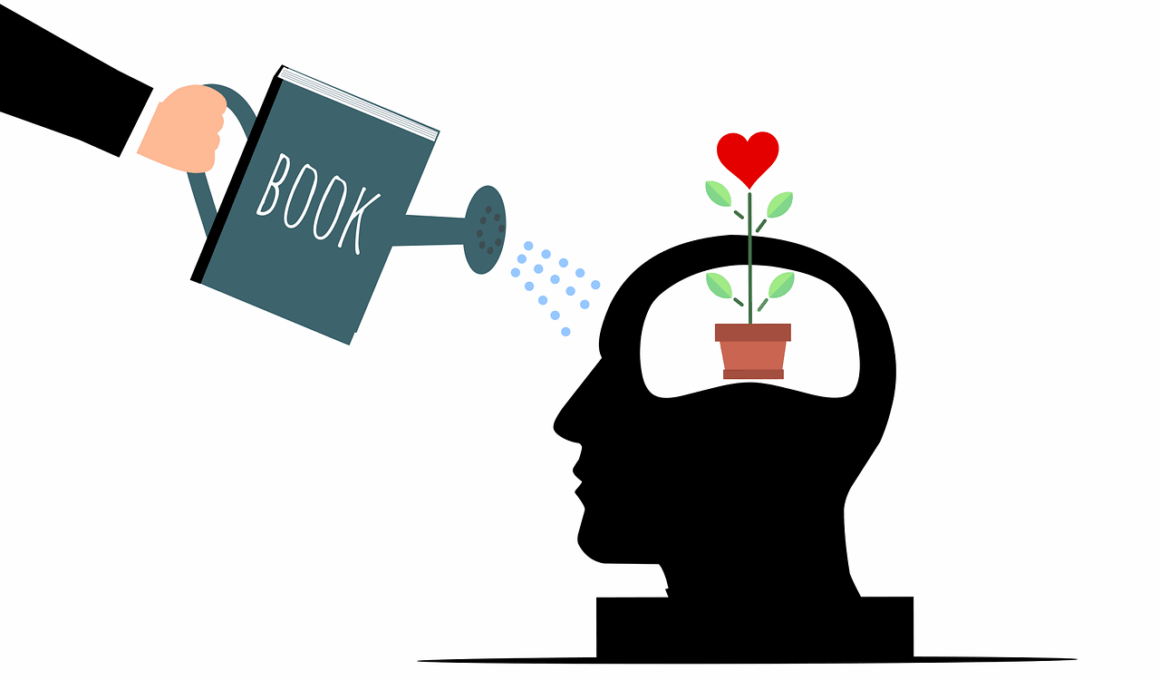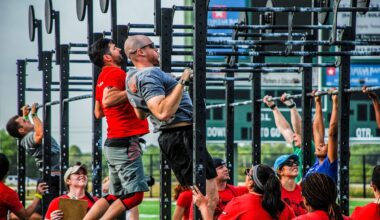Encouraging Growth Mindset in Team Sports Environments
In team sports, cultivating a growth mindset plays a vital role in the overall development of athletes. A growth mindset is defined as the belief that abilities can be improved through dedication and hard work. This perspective fosters resilience, motivation, and a passion for learning, essential components for success in sports. Coaches and leaders need to emphasize the importance of effort over innate talent, encouraging players to view challenges as opportunities for growth. By creating an environment that supports experimentation, athletes will be more open to taking risks and trying new strategies. Ultimately, developing a growth mindset allows athletes to embrace their limitations, learn from setbacks, and discover new strengths. Techniques to reinforce this mindset may include setting progressive goals, celebrating individual achievements, and fostering a culture of collaboration and support among teammates. Open communication is also crucial, allowing athletes to discuss their thoughts and feelings about their experiences. Coaches should model a growth mindset by sharing their learning journeys, illustrating that improvement is a continuous process. Each player will benefit from knowing they have the potential to grow, contributing to a stronger and more unified team atmosphere.
Strategies for Fostering a Growth Mindset
To foster a growth mindset within a team, it is important to implement various strategies that promote perseverance and dedication. Start by setting clear, reachable objectives for each athlete as well as the overall team. By breaking down larger goals into smaller, manageable tasks, players can experience small victories along the way. Recognizing these milestones helps reinforce the connection between effort and success. Regular feedback is also crucial, providing athletes with constructive criticism that focuses on improvement and learning rather than outcomes. Encouraging athletes to reflect on their experiences will help convert failures into valuable lessons, promoting a growth-focused culture. Another essential element is creating opportunities for peer support and collaboration through activities such as group training sessions and team-building exercises. This not only strengthens relationships but also allows athletes to learn from one another’s experiences. Additionally, promoting a culture of celebration surrounding effort, improvement, and teamwork can help shift the focus from competition and comparison to personal growth. Finally, integrating mindset training or workshops might further instill the principles of growth mindset into team practices and discussions.
Individuals in a team should learn how to overcome obstacles together. Group challenges can showcase collective resilience while promoting camaraderie among athletes. These experiences not only develop character but also forge lasting relationships that reinforce team unity. As athletes work together to address difficulties, they can draw on each other’s strengths, enhancing their skill sets. A supportive environment encourages players to share their vulnerabilities, empowering them to learn from their mistakes collectively. Emphasizing the importance of team feedback helps everyone contribute, fostering a deeper understanding and connection within the group. Incorporating varied practice methods can stimulate creativity, allowing athletes to find innovative solutions to problems. Regular debriefing sessions following competitions also provide an excellent opportunity for reflection and growth. Coaches should encourage discussions about what worked well and areas for improvement, emphasizing learning rather than merely focusing on winning and losing. By systematically addressing these aspects, athletes will be better equipped to handle adversity and maintain a positive attitude across challenges. As a result, they will be more prepared and confident in their abilities, vital attributes for any athlete aiming to excel in their respective sports.
The Role of Coaches and Support Staff
Coaches play an essential role in instilling a growth mindset within their teams by modeling desired behaviors and attitudes. It is critical for coaches to consistently exhibit passion for learning, adaptability, and resilience to set the tone for their players. When athletes witness these qualities in their coaches, they are more motivated to adopt similar mindsets themselves. Coaches should actively engage in their own professional development through trainings and workshops, demonstrating that growth never stops. Publicly recognizing effort and improvement from athletes can significantly contribute to reinforcing a growth mindset culture. Coaches need to create opportunities for athletes to practice skills that challenge them, but are still achievable. This practice encourages a safe space where athletes may struggle or fail without fear of negative repercussions. Support staff, including sports psychologists and nutritionists, also play a role in reinforcing this mindset. Providing resources for mental toughness training addresses the psychological aspects of performance, preparing athletes for high-pressure situations. Ultimately, the combined efforts of coaches and support staff will be pivotal in fostering an environment where every player can pursue their full potential and thrive.
Another significant element in encouraging a growth mindset is nurturing a culture of constructive feedback among teammates. Athletes can benefit greatly from peer reviews that promote open dialogues about their performances. By sharing insights and practical observations, teammates can help each other identify areas for improvement and celebrate accomplishments. This feedback loop not only boosts individual confidence but reinforces a collective team spirit focused on growth and excellence. Transparency in communication is essential, encouraging everyone to express their feelings about on-field experiences without fear of judgment. Implementing regular check-in conversations can help maintain a clear understanding of each athlete’s perspective and emotional state. Furthermore, sharing personal experiences regarding setbacks or achievements demonstrates vulnerability and authenticity, which naturally encourages others to do the same. This shared experience fosters trust and camaraderie, enabling athletes to navigate vigorous training and competition together. Ultimately, these practices contribute significantly toward creating a resilient team where every member feels valued and motivated to adopt a growth mindset in their athletic journeys.
Long-Term Benefits of a Growth Mindset in Sports
Encouraging a growth mindset among athletes leads to long-term benefits that extend beyond immediate performance improvement. When players embrace a growth mindset, they develop critical life skills such as adaptability, emotional intelligence, and perseverance that can impact various aspects of their lives. These essential attributes foster resilience in the face of setbacks, enabling athletes to bounce back from failures with renewed determination. Moreover, a positive mindset promotes a lifelong love for learning and self-improvement that carries over into other areas, such as academics or vocational endeavors. Athletes will likely showcase increased motivation and engagement in their practices, as they understand the value of consistent effort over time. Developing these qualities allows athletes to set and pursue ambitious goals, laying the groundwork for future achievements in sports and life. Establishing a supportive network among peers will also benefit players beyond their sports careers, as these connections will provide encouragement and collaboration in future challenges. Ultimately, fostering a growth mindset not only enhances athletic performance but also cultivates well-rounded, resilient individuals who thrive in various aspects of life.
In conclusion, instilling a growth mindset in team sports environments is crucial for maximizing athlete potential and fostering a culture of continuous improvement. Coaches, athletes, and support staff all play a role in creating an atmosphere that emphasizes resilience, collaboration, and self-development. Implementing strategies such as setting achievable goals, offering constructive feedback, and actively engaging in reflective practices contribute significantly to building this culture. Additionally, nurturing strong interpersonal relationships among athletes encourages shared learning, trust, and camaraderie. The long-term benefits of fostering a growth mindset transcend sports and positively impact individual lives. By encouraging athletes to embrace challenges and commit to relentless self-improvement, everyone involved can transform their experiences in the realm of team sports. Ultimately, a well-established growth mindset empowers athletes not only to improve their skillsets but also to build the very essential qualities necessary for achieving success in their lives beyond sports. As teams champion this way of thinking, they create an environment where players can thrive, leading to increased performance and an improved atmosphere for success, growth, and lasting friendships.


